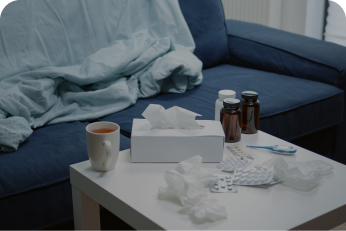Book an Appointment with the Best Doctors, and Receive Ideal Medical Care Tailored to Your Needs.
Exclusive Offers
Affordable Healthcare Just A Click Away.

Free First Consultation
New to our platform? Your first consultation is on us!

Seasonal Offers
Get 15% off on vaccinations this season. Protect yourself and loved ones.

Specialist Consultation Discount
Book a specialist consultation now and get 10% off your first visit.
Pick your needed specialty
See All>This Month's Highlights
Find top-rated doctors, trending conditions, and exclusive offers to ensure you and your loved ones receive comprehensive medical care.

1,500+
successful consultations completed.
80%
of Patients Rated Their Doctors 5 Stars This Month
500+
users relieved from chronic pain.
Everything You Need To Know Regarding Your Health!
Get the answers you need, all in one place. Explore expert-written blogs, browse our extensive FAQs for quick answers to common concerns, or use our Symptom Checker for preliminary insights.
Need in-depth details? Our Disease Directory provides comprehensive information to help you understand conditions better.
Whatever you're looking for, we’re here to support your health journey, seamlessly and effortlessly.
100+ Expert
Reviewed Blogs & Medical Guidelines
80+ Symptoms
and Diseases Explained